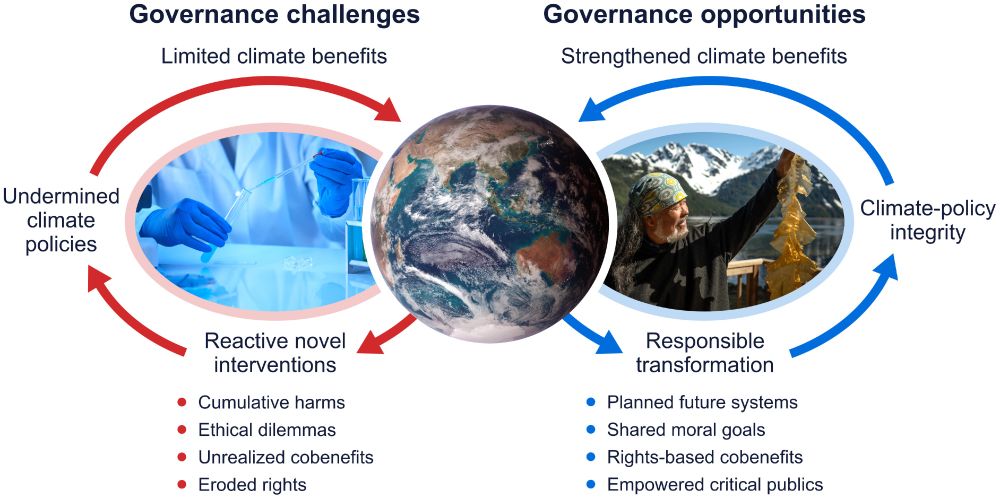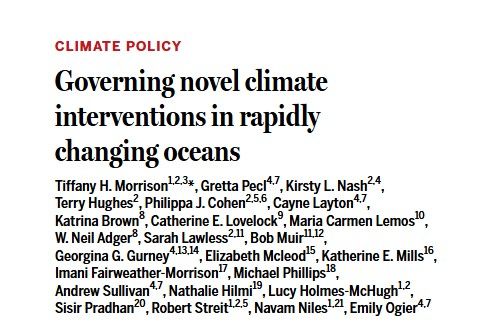
Prof, mentor and leader of Governing Changing Oceans program, University of Melbourne ARC Laureate @jcuofficial.bsky.social @w-u-r.bsky.social @snappartnership.bsky.social
governingchange.org

Novel interventions are gaining traction to sustain oceans and ocean-dependent societies, but they come with risks. 💥
Our new paper in @science.org explores how to "go slow to go fast" on ocean-based climate action.
Read more: bit.ly/45IrRMd

Proud collaboration with @sarahlawless.bsky.social @profterryhughes.bsky.social @robertstreit.bsky.social and others from the amazing Governing Changing Oceans team

Our Funders Brief offers 5 strategies for responsible investment:
Governance readiness
Rights-based interventions
Locally led initiatives
Ethical capacity
Climate effectiveness
Funders brief: bit.ly/46Payuq
Reposted by Tiffany H. Morrison

Reposted by Gareth J. Williams, Tiffany H. Morrison

#EcologicalOceanography #InterdisciplinaryResearch #CoralReefs #OceanicSubsidies
doi.org/10.1038/s415...
@sosbangor.bsky.social
Reposted by Tiffany H. Morrison

Reposted by Tiffany H. Morrison
Reposted by Terry P. Hughes, Tiffany H. Morrison

Reposted by Tiffany H. Morrison

And more on the author team, here: snappartnership.net/teams/govern...
and here: governingchange.org
Reposted by Tiffany H. Morrison


In response, novel interventions are gaining traction fast.
They aim to sustain ocean systems and ocean-dependent societies - but come with risks. 💥
New review paper in Science
More below 👇 and paper here: www.science.org/doi/10.1126/...
Reposted by Tiffany H. Morrison

phys.org/news/2025-07...
Reposted by Tiffany H. Morrison

Reposted by Terry P. Hughes, Julie L. Lockwood, Tiffany H. Morrison

Our climate interventions are rapidly evolving, from seaweed farms to engineered coral. However, governance is lagging, and without proper oversight, we risk trading one crisis for another...
www.science.org/doi/10.1126/...
Reposted by Tiffany H. Morrison

go.nature.com/4194lp6 #academicsky
Reposted by Tiffany H. Morrison

Development of these interventions is outpacing governance readiness. Read our recommendations here:
www.nature.com/articles/s41...
Reposted by Tiffany H. Morrison

But what about the roles of:
Politicians, Judiciary, NGOs, Media, Non-local societies, Entrepreneurs, self-appointed Billionaires, etc?
www.science.org/content/arti...
Reposted by Tiffany H. Morrison

eos.org/opinions/gla...

